Microsoft HoloLens augments Xbox One @ E3 2015: Speculation, hopes, dreams
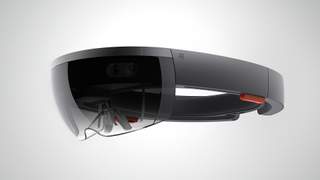
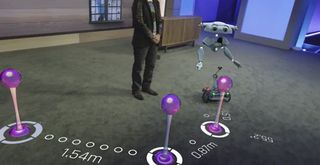
On April 29, Microsoft blew up the internet for a second time with elaborate live demos of HoloLens
Microsoft's Build conferences are typically focused on developers, companies and commercial applications of their products, but team Redmond often announce new consumer experiences there as well. The popular Unity 3D engine is a confirmed partner for HoloLens, which powers a vast amount of games with its cross-platform publishing capabilities. Those capabilities are coming to HoloLens.
The HoloLens developer website has been updated, proudly sporting the fact that the device, and more information on HoloLens games development, will be arriving at the world largest games expo - E3 2015 on June 16th.
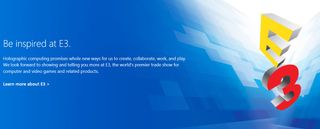
It's been known for a while that the Xbox team is involved with HoloLens. A HoloLens studio head's LinkedIn found its way onto Reddit following the initial reveal, and within, it explicitly states that he's part of a team working on HoloLens Xbox experiences.
...I Lead 4 amazing experience/game studios within XBOX that create amazing consumer experiences for Microsoft Hololens Manage an organization of over 125 rockstars that want to change the world every single day...
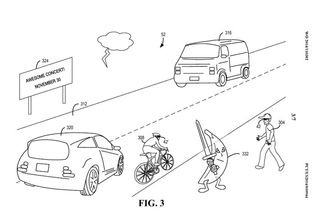
This info rests on the back of various other patents and leaks dating back all the way to 2012 and beyond, detailing numerous AR experiences in lengthy descriptions as well as frequently hilarious patent doodles. The technology for gaming on HoloLens is available within Microsoft; Kinect gesture tracking; the Xbox Live platform; close relationships with hundreds, if not thousands of games developers. All that remains is to tie all these elements together into a cohesive, gaming whole.
Could we soon be doing battle with evil augmented reality bananas? Time will tell.
AR vs. VR
If powerful enough, HoloLens could supersede VR in important ways. Unlike VR devices like Oculus and Project Morpheus, AR doesn't blind the player to the surrounding environment, meaning you're persistently oriented to the real world, eliminating motion sickness. As mentioned earlier, and unlike some of the major VR devices in development today, HoloLens doesn't need to be tethered to a PC or console in order to work - which creates versatility.
Get the Windows Central Newsletter
All the latest news, reviews, and guides for Windows and Xbox diehards.
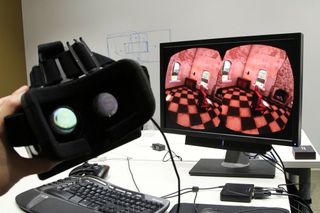
I honestly feel that the teams at HTC Vive and Oculus Rift may be wondering if they got it wrong, the applications for VR are likely limited. I tried Oculus Rift at Gamescom 2014, and whilst the experience was vivid, I can't imagine I'd ever use it for long periods of time in any gaming scenario. The prototype headsets are bulky, and there's that old motion sickness problem - both of which I'm sure will be amended in future iterations but they're significant hurdles the augmented HoloLens has already solved.
VR is limited to the first person perspective, and requires the use of another peripheral to traverse flat plains. What inputs are available to VR headsets besides game controllers? There are some solutions, Leap Motion has partnered up with Oculus Rift to provide HoloLens-like air-touch technology to the headset. However, unless Oculus can leverage Leap Motion and similar technologies directly into the headset, the idea of needing separate devices to achieve that functionality already feels dated, thanks to HoloLens.
I believe Sony's Project Morpheus is in a far stronger position in a gaming context. Sony already have powerful technologies in-house to create experiences that are similar to HoloLens, albeit across several different devices working together. Sony already have strong relationships with games developers, in addition to running their own big budget internal studios. Most of the games that utilize the Playstation Camera did so using augmented reality, albeit via your TV, and the under-rated Playstation Move peripherals will allow Morpheus owners to interact in a virtualised 3D space more naturally than using a controller. Whilst Sony can likely create a more cohesive than a group of separate companies, the requirement to use external devices will create problems for adoption.

HoloLens likely won't put a 3D stereoscopic video game experience in-front of your eyes, but it doesn't have to. The VR headsets in development for gaming will likely be too expensive for what they will provide - the ability to move your head independently of a game's camera controls to view a first person game world. HoloLens could augment any game, whether its providing extra elements like HUD data or providing air gestures, its vastly more versatile than Oculus' first-person-only form factor. The limitations of VR put it at a real danger of being confined to a small subset of games and apps at home, like Kinect and Playstation Move.
HoloLens on the other hand needn't worry about these problems. The headset operates independently of any other device, inputs and all, making its versatility unmatched. Developers needn't build entire games into HoloLens (although there's no reason why they can't, thanks to Unity 3D, on-board spatial awareness tech and universal app support), but instead they could just add small augmentations to existing games you play via your TV. When it comes to value, gamers can trust that their HoloLens will receive functionality beyond gaming thanks to the Windows 10 universal app platform, already creating confidence any new platform needs to succeed, gaming or not.
Games in an augmented reality
The applications for HoloLens in gaming are fairly obvious. At Build, Microsoft showed off cartoon robots and holographic dogs roaming around the room utilizing HoloLens' spatial awareness capabilities. HoloLens can detect floors, walls and surfaces like tables, and you can anchor holograms directly onto these real-world platforms.
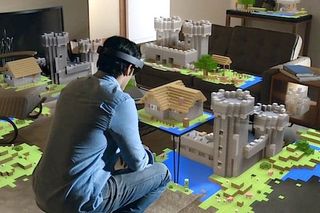
Kids' gaming is a blatant example. Sony themselves launched the 'Wonderbook' AR experience for their Playstation Camera, which feeds data from a physical book directly into the camera, which then outputs effects on your TV in kind. The hardcore audience mocked it, but Playstation Wonderbook enjoys a 4.5/5 rating on Amazon UK across 101 reviews, showing that there is certainly an audience for these targeted experiences.
On the third party end, the robot Microsoft displayed to show off the holographic anchoring could be used to power desirable (and expensive) kids toys. Sorry parents. Xbox could leverage games like Zoo Tycoon and Kinectimals to powerful effect on HoloLens, and of course, we've already seen concepts for Minecraft experiences using the tech.
When it comes to core gamers, integrating with Xbox One, HoloLens could deliver HUD data like ammo counts, or maybe even throw debris onto the visor to further a player's immersion. Most first person shooters display ammo counts, mini maps and other information on screen, these elements could easily be lifted onto HoloLens, freeing up screen real estate for the game running on your monitor. Displaying HUD data on the HoloLens could also impact tournament gaming, preventing pesky players around you from taking advantage.
Watch_Dogs features mini-games which augment reality within the game world via an advanced smartphone, similar to many Android and iOS titles today. Considering the fact the HoloLens operates completely independently of any other device and supports Unity 3D, it seems more than likely we'll see standalone casual titles in that sort of vein as well. The finger tracking tech Microsoft have been working on could act as a peripheral for all sorts of gestures, like shooting a virtual gun or landing virtual punches, and so on.
Potential applications for core gamers is endless. Could we see flagship titles like Halo 5 use HoloLens to display visor information typically shown on screen? It seems entirely likely.

If Microsoft are positioning HoloLens as a companion device for Xbox One gamers... or even a standalone AR gaming device, hopefully it'll be on the more affordable end of the spectrum. I can't imagine they would expect their core gaming audience, who might not use the other apps, to be interested in a £1000 companion device. Maybe. Hopefully. Please?
We'll have to wait until June 16th at E3 to find out more.
Keep your eyes on Windows Central for all the latest emerging from this year's Build conference.

Jez Corden is a Managing Editor at Windows Central, focusing primarily on all things Xbox and gaming. Jez is known for breaking exclusive news and analysis as relates to the Microsoft ecosystem while being powered by tea. Follow on Twitter @JezCorden and listen to his XB2 Podcast, all about, you guessed it, Xbox!
